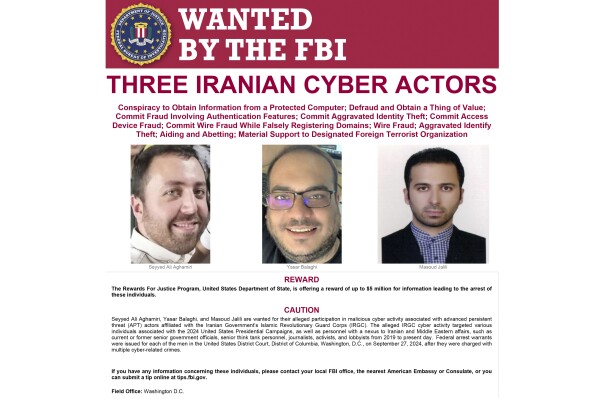In recent developments, a group of Iranian hackers accused of targeting U.S. presidential candidate Donald Trump’s campaign emails has succeeded in making some of the stolen materials public. Initially facing limited media interest, the hackers, tracked by the U.S. Department of Justice as “Mint Sandstorm” or APT42, shifted tactics, distributing Trump campaign documents through the Democratic-aligned American Muckrakers PAC and certain independent journalists. The leaked materials reportedly showcase Trump campaign exchanges with advisers and allies, providing insight into election preparation and campaign strategies for the 2024 election cycle.
This alleged interference operation underscores Iran’s sustained interest in U.S. elections, despite DOJ indictments against the hackers. The accused Iranian hackers, who allegedly accessed campaign accounts using stolen passwords in May and June, now face potential fines and prison time if convicted. As stated in FBI communications, the Iranian agents used the alias “Robert” to communicate with the media. Although Tehran denies involvement, FBI warnings suggest the group seeks to disparage Trump, whom they see as responsible for the 2020 assassination of General Qassem Soleimani.

American Muckrakers, the North Carolina-based PAC publishing these leaks, has previously worked to expose Republican figures. While David Wheeler, the PAC’s founder, has declined to verify “Robert” as the source, he maintains that the documents serve the public interest. The Trump campaign argues the Iranian hackers aim to destabilize the U.S. electoral process and cautions against publicizing the material. A similar stance on hacked material has been shared by major news outlets like the New York Times, which declined to publish the documents, citing a lack of verifiable newsworthiness. However, independent journalist Ken Klippenstein posted some of the emails on Substack, defending the public’s right to access potentially impactful information.
The Iranian hackers’ outreach began in July with contacts to several news outlets through emails under the alias “Robert.” Their initial pitch to prominent media groups, including Politico and Reuters, included sensitive information on vice-presidential candidates under consideration by Trump. However, major outlets refrained from publication, focusing instead on the potential foreign influence narrative. By September, the emails were deactivated with Yahoo’s assistance, leading the hackers to suggest an alternative contact through the encrypted Signal app. Reports from U.S. intelligence indicate that Iran is concentrating on undermining Trump, further spotlighting the nation’s apparent vested interest in U.S. political outcomes.
The PAC and some independent outlets have since published additional Trump campaign materials related to other high-profile races, including North Carolina’s gubernatorial candidate Mark Robinson and Florida Representative Anna Paulina Luna. Wheeler from American Muckrakers has hinted at further leaks to come, continuing the controversial debate on balancing public interest with ethical journalism amidst foreign-influenced leaks.




